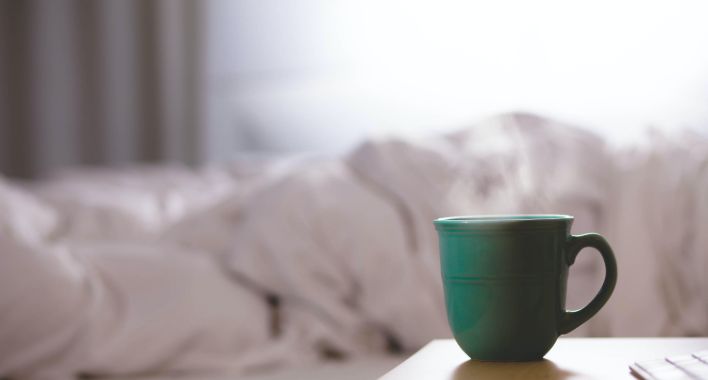Problems associated with sleep are a frequent topic in psychology. Problems with insomnia are often related to stress and anxiety. When we are upset or overwhelmed, it is difficult to disengage from our problems to sleep.
Some people filter the tension that builds up during waking hours. However, when the quantity or quality of sleep are impacted by tension during the day, we can’t assume that our problems will be solved when we wake up the next morning.
The tensions and concerns we encounter during waking hours affect the quality of sleep. Sleep problems are not just the result of issues that don’t allow us to sleep, such as the anxiety we experience during the day. People who can’t sleep well are usually not relaxed, cheerful, lucid or optimistic. If you believe your situation has worsened so much that you are moving from bad sleep to insomnia (either not being able to fall or stay asleep) then it is time to see a doctor. You can also consider talking to a psychologist, especially if you have already identified what is preventing you from sleeping well.
Perhaps you are getting a decent amount of sleep but you notice a lack of quality in your sleep. If this is the case, here are some basic guidelines that can improve the quality of your sleep.
1. No screens
Televisions, especially mobile phones and tablets, transmit powerful radiation that keeps the brain active. Watching television for a while before going to bed is a common routine in our civilization. We advise replacing electronics with reading.

The habit of engaging with a screen every night before you go to bed is a problem that contributes to a lack of sleep. If you can relate to this, set boundaries with your devices and make it part of your daily routine. For example, don’t use your phone after dinner, after 10 pm, or two hours before going to bed. If you try this, you will surely rest better.
2. Don’t overeat before sleeping
Follow the old saying: “Eat breakfast like a king, eat lunch like a prince and eat dinner like a pauper.” Although certain circumstances force us to skip this principle, we should apply it as much as possible.
One of the functions of food is to provide energy to face everyday tasks, which is especially important for breakfast and lunch, but not so much for dinner since we usually go to bed after that last meal. In other words, we don’t need as much energy because there is not much energy required at night. When food consumption is abundant and flavorful (spicy, salty, etc.), digestion is longer and heavier. This can negatively influence the quality of sleep. We recommend eating smaller quantities to improve sleep.
3. Reduce stimulants
Consuming a stimulant (i.e. having a third coffee of the day) can also reduce the quality of sleep. When people sleep poorly, they often compensate by consuming substances such as coffee, tea, and carbonated drinks. These substances can affect sleep rhythms and can turn into a bad habit.
If you drink three or four cups of coffee and feel anxious, you don’t have anxiety, you are just drinking way too much coffee. There are people who can have coffee during dinner and then sleep like a baby for ten hours. Good for them! If you are not one of those people, the best thing you can do is stop making your life dependent on caffeine, especially if the doses are very high. Try reducing the amount you drink to improve the quality of sleep, and see what happens with your levels of relaxation.

If you choose to reduce caffeine intake, wean yourself off slowly, so the withdrawal is not too harsh.
4. The bed is for sleeping
If you are one of those people who sleep wonderfully, skip this principle.
The bed is not for working, watching TV or eating. If you use the bed for this, you are training your body to associate your bed with something other than sleeping. If your body associates the bed with things that are unrelated to sleep, you will have a harder time going into sleep mode when you go to bed. Conversely, if your body knows that the bed is for sleeping, it will be easier to fall asleep.
5. Try to improve physical activity
Having a sedentary life can cause the body to feel tired.
This does not necessarily mean that you have to sign up for a gym membership. It means that sufficient and adequate physical activity will help you manage anxiety and sleep better. Begin by incorporating two healthy habits into your routine like walking or going up/downstairs. Both examples are easy, free, and beneficial for your health.

If you feel like doing something more advanced, start slow and remember your limits. Determine the physical activities that are fun and engaging. Once you determine which physical activity is best for you, it won’t hurt to combine it with activities that also help you relax. Try meditation, yoga, Pilates, tai chi, etc. Do your research, and above all, persevere. At the end, it’s about learning to regulate the body in a wiser way so you can sleep in peace. Finally, and even if it seems silly to you, keep the house tidy, especially your room. Order and cleanliness orient our body towards rest and tranquility.
These are basic but useful tips that you can implement today to improve your sleep. Practice them, close your eyes, and sleep well!


